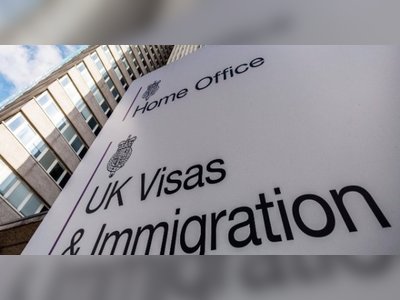
UK Government Launches ‘Earned Settlement’ Consultation, Proposing Major Overhaul of Permanent Residency Rules
New proposals require migrants to demonstrate contribution, integration and good character — raising standard qualifying period to ten years for many
The United Kingdom government has opened a twelve-week public consultation (running until 12 February 2026) on sweeping reforms to its immigration settlement system, unveiling a new “Earned Settlement” model that would transform how legal migrants qualify for permanent residency.
Under the proposals, what was once a largely time-based entitlement — typically automatic after five years — will be replaced with a system in which settlement must be earned through sustained contribution, integration and lawful conduct.
As set out in the consultation document “A Fairer Pathway to Settlement,” the standard qualifying period for most routes would lengthen from five years to ten; but the government would assess applicants against four core pillars — character, integration, contribution and residence.
Applicants would need clean criminal and immigration records, a minimum level of English proficiency (at least B2), and demonstrable economic activity such as regular taxable earnings over multiple years.
Dependants and family-route applicants, who previously could settle after five years, would generally fall under the new rules (though some exceptions may apply).
A “time-adjustment” system is proposed to give high-earning or high-skilled migrants the ability to shorten the path to settlement.
For example, individuals who show high taxable income, strong English, public-service work, or community/vocational contribution could see their qualifying period reduced.
Conversely, migrants who have drawn on public funds, overstayed a visa or entered illegally might face extended qualifying periods — in some cases up to 15 or even 20 years.
The government says the objective is to ensure settlement is a “privilege, not a right,” restoring public confidence and aligning long-term migration with economic and social contribution.
The 2025 Immigration White Paper, published in May, first set out the broad policy direction.
The consultation marks the first detailed blueprint for implementation.
Officials stress the reforms are not yet law and will be subject to parliamentary scrutiny and public feedback.
Legal and immigration advisers already warn that the draft rules — if adopted broadly — represent the most significant rewiring of UK settlement policy in decades.
Many prospective settlers, sponsors and migrants currently on long-term visas may see their timelines and conditions for permanent residency shift dramatically.
Businesses, particularly those dependent on sponsored skilled workers, may need to adjust workforce planning to reflect longer qualifying periods or rely on migrants able to meet accelerated-settlement criteria.
As the consultation proceeds, all eyes are on how the Government will balance its stated goals of migration control, social integration and economic competitiveness against concerns over fairness, complexity and the future of thousands already building lives in the UK.
Under the proposals, what was once a largely time-based entitlement — typically automatic after five years — will be replaced with a system in which settlement must be earned through sustained contribution, integration and lawful conduct.
As set out in the consultation document “A Fairer Pathway to Settlement,” the standard qualifying period for most routes would lengthen from five years to ten; but the government would assess applicants against four core pillars — character, integration, contribution and residence.
Applicants would need clean criminal and immigration records, a minimum level of English proficiency (at least B2), and demonstrable economic activity such as regular taxable earnings over multiple years.
Dependants and family-route applicants, who previously could settle after five years, would generally fall under the new rules (though some exceptions may apply).
A “time-adjustment” system is proposed to give high-earning or high-skilled migrants the ability to shorten the path to settlement.
For example, individuals who show high taxable income, strong English, public-service work, or community/vocational contribution could see their qualifying period reduced.
Conversely, migrants who have drawn on public funds, overstayed a visa or entered illegally might face extended qualifying periods — in some cases up to 15 or even 20 years.
The government says the objective is to ensure settlement is a “privilege, not a right,” restoring public confidence and aligning long-term migration with economic and social contribution.
The 2025 Immigration White Paper, published in May, first set out the broad policy direction.
The consultation marks the first detailed blueprint for implementation.
Officials stress the reforms are not yet law and will be subject to parliamentary scrutiny and public feedback.
Legal and immigration advisers already warn that the draft rules — if adopted broadly — represent the most significant rewiring of UK settlement policy in decades.
Many prospective settlers, sponsors and migrants currently on long-term visas may see their timelines and conditions for permanent residency shift dramatically.
Businesses, particularly those dependent on sponsored skilled workers, may need to adjust workforce planning to reflect longer qualifying periods or rely on migrants able to meet accelerated-settlement criteria.
As the consultation proceeds, all eyes are on how the Government will balance its stated goals of migration control, social integration and economic competitiveness against concerns over fairness, complexity and the future of thousands already building lives in the UK.










